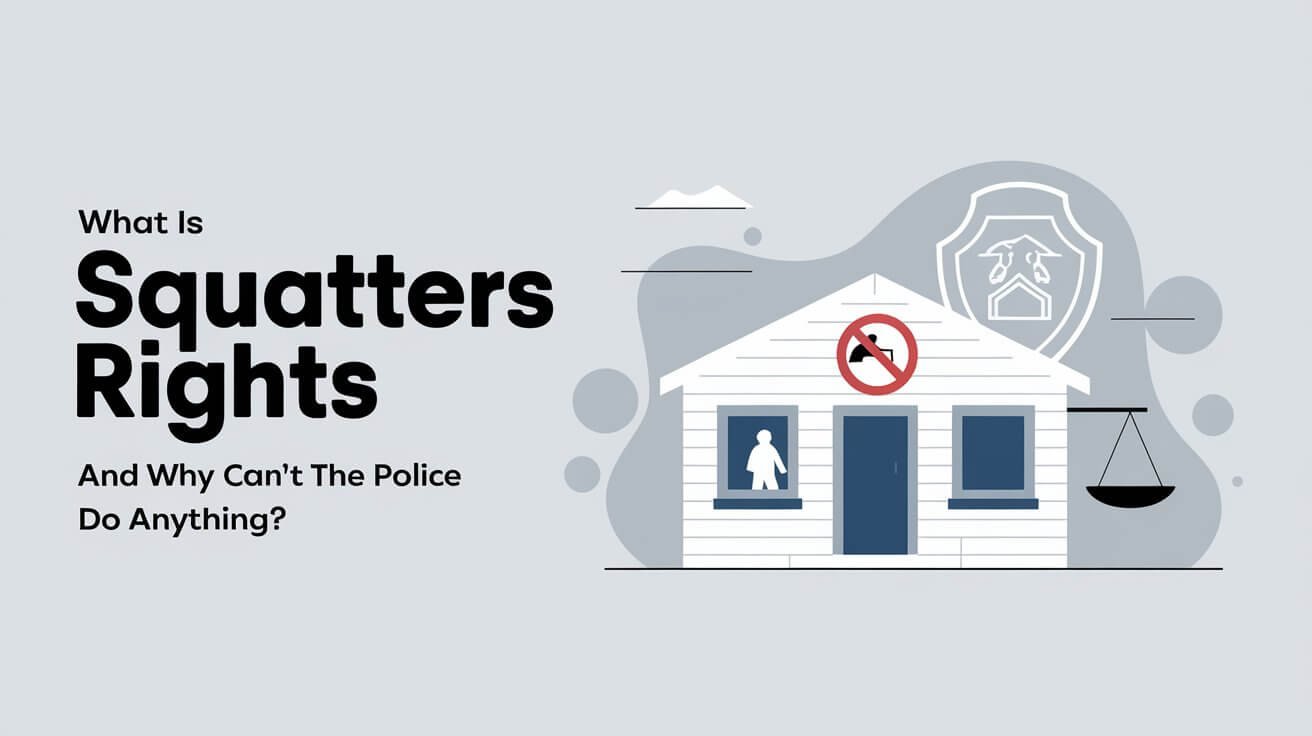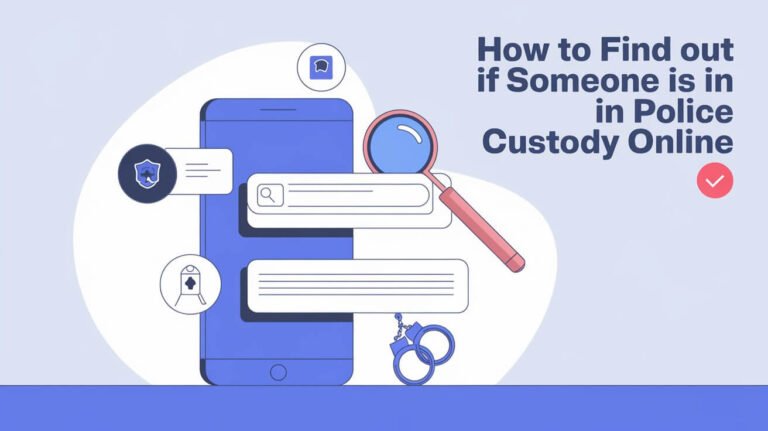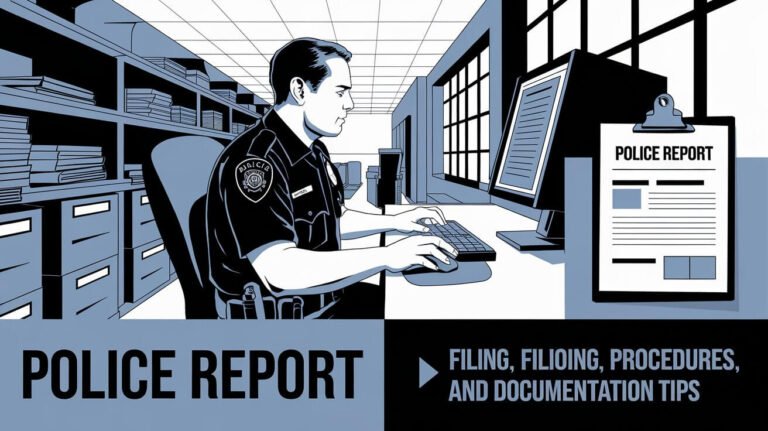What Is Squatters Rights And Why Can’t The Police Do Anything?

Squatters’ rights protect people who live in empty or abandoned houses without permission. They can even get legal ownership through a process called adverse possession. This usually takes 10 to 20 years of continuous living there.
Law enforcement faces big challenges when dealing with squatters. They can’t always kick them out. In the U.S., about 1 million squatters live in empty houses. This shows how big the problem is and why property owners need to know their rights.
In places like Oklahoma, squatters can own a house after just 15 years. This makes it very important for property owners to act fast if they find someone living in their house without permission. The issue of squatters’ rights is a complex one, with both sides having valid points.
Defining Legal Status of Squatters in the United States
The legal status of squatters in the United States is complex and often misunderstood. Squatters are people who live in properties without owning them or having a lease. They often live in abandoned or foreclosed buildings. Squatters are different from trespassers because they have their own legal rules and protections.
Differences Between Squatters and Trespassers
The main difference between squatters and trespassers is their intent. Trespassers enter a property without permission and don’t plan to stay long. Squatters, by contrast, aim to live there permanently, staying for a long time.
Legal Requirements for Squatter Status
The rules for squatter status vary by state. Generally, squatters must live in the property continuously and sometimes pay property taxes. In New York, for example, squatters can gain rights after just 30 days. In other places, it might take seven years.
Rights and Protections Under Current Law
Squatters may have some rights under the law, making it hard for property owners to evict them. These rights can include the need for advance notice and the chance to contest the eviction. This makes it tough for property owners to take back their properties.
| State | Minimum Continuous Possession for Squatter Status |
|---|---|
| New York | 30 days |
| Illinois | 7 years |
| Florida | Law enforcement must remove squatters unless evidence of past rent payment or lease |
| Seattle, Washington | 7 months to evict a serial squatter from a $2 million home due to a backed-up court system |
What Is Squatters Rights And Why Can’t The Police Do Anything
Squatters’ rights are a legal issue in the United States. They create a problem for property owners and the police. People who live in empty or abandoned places without permission might get legal rights to that property.
The police can’t just kick out squatters because it’s seen as a civil issue, not a crime. They can only step in if the squatter is breaking the law or won’t leave after being told to. Property owners have to go through a long and complicated legal process to get them out.
This rule helps prevent unfair evictions and protects the rights of both owners and renters. But it can be really tough for owners who want to quickly solve squatter problems.
There are some times when the police can help, like if the place was recently empty, the owner said it’s okay to remove the squatter, or if there’s criminal activity. But usually, the eviction process needs to go through the courts. This can take a lot of time and effort.
The Evolution of Adverse Possession Laws Across States
Adverse possession laws differ a lot from state to state. Each state has its own rules about how long someone must occupy a property to gain legal rights. It’s key for both property owners and those claiming adverse possession to understand these rules.
Time Requirements for Different Jurisdictions
The time needed to make an adverse possession claim varies. In California, it’s as short as 5 years. But in New Jersey, it can take up to 30 years. For example, Florida and Utah need 7 years of continuous use and tax payment. New Jersey demands 30 years for buildings and 60 years for land that’s not used.
Documentation and Evidence Needed
Squatters must show they’ve openly and continuously occupied the property. They need documents like utility bills and tax receipts. In California, they also have to pay property taxes to support their claim.
Property Tax Payment Requirements
| State | Time Requirement | Tax Payment Needed |
|---|---|---|
| California | 5 years | Yes |
| Florida | 7 years | Yes |
| New Jersey | 30 years (real estate), 60 years (uncultivated lands) | No |
| Georgia | Proposed law to criminalize squatting | N/A |
| Arizona | 10 years (without color of title), 5 years (with color of title and tax payments) | Yes |
These differences in state laws show why it’s vital to check local rules before trying to claim adverse possession or acting as a property owner.
Police Limitations in Handling Squatter Situations
Law enforcement in the United States often face big challenges when dealing with squatters. They are limited in how they can handle these situations. This is because of the legal status of squatters and the complex nature of civil matters.
Police need a valid court order to remove squatters. Squatters who claim they live there can’t be kicked out without a court order. This makes it hard for property owners to get rid of them.
During the COVID-19 pandemic, some places had rules against evictions. This made it even harder for police to deal with squatters. Their main job is to keep the peace and follow court orders during the eviction process.
Health and safety concerns also limit police action. They have to make sure everyone is safe. Squatters might have rights, and removing them must follow the law to protect those rights.
In short, while property owners might want police to quickly solve squatter problems, they can’t. Police are bound by legal rules and the civil nature of these disputes. Their main task is to help with the legal eviction process and keep order, not to remove people without a court order.
Legal Process for Property Owners to Remove Squatters
Getting rid of squatters can be hard and slow. But, property owners can use the law to take back their place. First, they need to document everything well. This includes showing they own the property and that the squatters are there without permission.
This might mean getting copies of the property deed, taking photos, and giving eviction notices to the squatters.
Required Documentation and Evidence
Property owners need strong legal grounds to start the eviction process. They should have:
- Proof of ownership, such as the property deed
- Evidence of unauthorized occupancy, like photographs or witness statements
- Copies of any eviction notices or correspondence with the squatters
Court Procedures and Timelines
With the right documents, the owner can file an eviction lawsuit. This is called an “unlawful detainer” action. The court will then schedule a hearing, usually within a few weeks.
At the hearing, both sides can share their side of the story. The whole court process can take months, depending on where you are.
Enforcement of Eviction Orders
If the court sides with the owner, an eviction order is issued. Local police must then remove the squatters and their stuff. How fast this happens can vary.
But, it’s key for the owner to work well with the police to make sure the eviction goes smoothly and quickly.
Recent Changes to Squatter Rights in 2024
In 2024, many states updated their laws on squatter rights. They want to help property owners deal with unwanted guests. These legal updates, property law amendments, and state legislation changes have changed how squatters’ rights work across the country.
New York now makes it easier to remove squatters. Georgia has a new law that makes kicking out squatters simpler. Alabama also made changes to help property owners and law enforcement understand squatters’ rights better.
These changes show that states are getting more serious about squatters’ rights. Lawmakers aim to protect property owners and help those facing housing problems. They’re trying to find a fair balance.
As squatter rights keep changing, property owners need to keep up. They should know about the legal updates and property law amendments in their area. Talking to a real estate lawyer is key to handling any squatter issues well.
Critical Prevention Strategies for Property Owners
Keeping your property safe from squatters is key. Owners must take steps to stop unwanted guests and keep their property safe. This includes locking doors, working with police, and more.
Security Measures and Property Monitoring
Lock all doors, windows, and access points well. Think about adding security like cameras and alarms. Regular checks can spot any trespassers early.
Documentation and Regular Inspections
Keep detailed records of your property ownership. This includes legal papers and tax info. Regular visits help show the property is empty and yours.
Legal Safeguards to Implement
Learn about your state’s squatter laws. Know how to prove you own the property and how to remove squatters. Use signs and work with police to keep squatters away.
Taking these steps, owners can protect their property. This includes locking up, keeping records, and knowing the law. These actions help avoid problems with squatters.
Unauthorized Occupancy vs. Tenant Rights
It’s important to know the difference between unauthorized occupants and legal tenants. Legal tenants have rights from their rental agreements. Squatters might get similar rights if they stay long enough in some places. Knowing this helps property owners avoid legal trouble.
Holdover tenants are legal but stay after their lease ends. Squatters never had permission to be there. To kick out holdovers, you need a court and police. Squatters need a trespassing lawsuit to be removed.
If you think you have squatters, look for signs like changes in utility use or damage. Taking action fast is key. Waiting too long can let squatters claim the property as their own.
Landlords can stop and deal with squatters by using security systems and regular checks. They should also market their property well to keep it full. Getting a professional property management team can help handle squatter issues.
The Role of Law Enforcement in Squatter Disputes
Law enforcement focuses on keeping the public safe and following court orders in squatter disputes. They step in when squatters break the law, take over recently empty homes, or do illegal things. But, they can’t kick out squatters without the right legal papers.
Property owners need to know these rules and follow the law to get help. Police can help with safety and trespass issues. But, to remove squatters, owners must get court orders and follow the law’s timeline.
| State | Time Requirement for Squatters’ Rights |
|---|---|
| Delaware, Georgia, Hawaii, Idaho, Illinois | Over 20 years |
| Colorado, Connecticut, Kansas, Michigan | 15-20 years |
| Alaska, Arizona, New York, Oregon, Texas, Washington | 10 years |
| California, Florida, Tennessee | 7 years or less |
The job of law enforcement in squatter cases is tricky. They must follow the law, keep everyone safe, and respect both sides’ rights. By knowing the legal limits and following the rules, property owners can handle squatter problems better. They can also get the right help from police.
Property Owner Rights and Legal Recourse Options
As a property owner, you have the right to protect your assets from unauthorized occupation. When dealing with squatters, there are legal options available to you. The first step is to understand the specific squatting laws in your state. These laws can vary a lot in requirements and enforcement.
One of the key legal actions you can take is to initiate a formal eviction process. This involves serving the squatters with an eviction notice. If they refuse to leave, you can file an eviction lawsuit with the court. The timeline and procedures for this process can differ depending on your location. It’s important to consult with a local legal expert familiar with landlord-tenant laws.
In addition to the eviction route, property owners may also have the option to pursue civil lawsuits. These can include trespassing or unlawful detainer claims to establish rightful ownership and remove the squatters. It’s important to note that engaging in self-help evictions or harassing the squatters can lead to legal troubles. It’s advisable to work closely with law enforcement and the courts throughout the process.
Common Queries
What is squatters’ rights and why can’t the police do anything?
Squatters’ rights protect people living in empty or abandoned places without permission. They can even own the property after 10-20 years. Police can’t act fast because it’s a civil matter and squatters have some rights.
How are squatters defined legally in the United States?
Squatters live in places they don’t own or rent, often in old or foreclosed buildings. They plan to stay long-term. Laws about squatters vary by state but usually require them to stay for a long time and sometimes pay taxes.
What are the limitations of police intervention in squatter situations?
Police can’t kick out squatters right away because it’s a civil issue. They need a court order to do so. This helps avoid unfair evictions but can be slow for property owners. Police can help if the place is recently empty, the owner agrees, or if there’s crime.
How do adverse possession laws vary across different states?
Laws on adverse possession differ a lot. Some states require 7 years, while others need 30. You must show you’ve lived there continuously, often with bills or tax records. Some states want you to pay taxes to strengthen your claim.
What are the key limitations for law enforcement in dealing with squatters?
Police can’t remove squatters without a court order if they claim residency. They might wait if there’s a health risk. During the COVID-19 pandemic, some places stopped evictions, making it harder for police to act. Their main job is to follow court orders and keep the peace during evictions.
What is the legal process for property owners to remove squatters?
To get rid of squatters, owners must document the issue, serve a notice, file a lawsuit, go to court, and get the order enforced by police. They need proof of ownership and evidence of squatters. The whole process can take months, depending on where you are.
How have squatters’ rights laws changed in 2024?
In 2024, some states updated their laws on squatters. New York made it easier to remove them. Georgia and Alabama also changed their laws to help property owners. These updates aim to make it easier to deal with squatters while keeping legal rights.
What are the critical prevention strategies for property owners to deter squatters?
To keep squatters away, owners should lock doors, check the property often, and keep it looking lived-in. Security systems, “No Trespassing” signs, and good relationships with neighbors and police help. Keeping records of ownership and paying taxes are also key.
How do unauthorized occupancy and tenant rights differ?
It’s important to tell the difference between squatters and tenants. Tenants have rights from a lease, while squatters might get similar rights over time. Some places treat squatters like tenants after a while, making eviction harder. Owners need to understand these differences to avoid legal problems.
What is the role of law enforcement in squatter disputes?
Police mainly keep the peace and enforce court orders in squatter cases. They can help if there’s criminal trespass, the place is recently empty, or if there’s illegal activity. But they can’t kick out squatters without the right paperwork. Owners should know these limits and follow the law when asking for police help.
What legal recourse options do property owners have to address squatters?
Owners have ways to protect their property from squatters. They can go through eviction, sue in court, or work with local authorities. Avoiding self-help evictions and harassment is important to avoid legal trouble. Knowing local laws, keeping good records, and getting legal advice are key steps to protect property and handle squatters.






